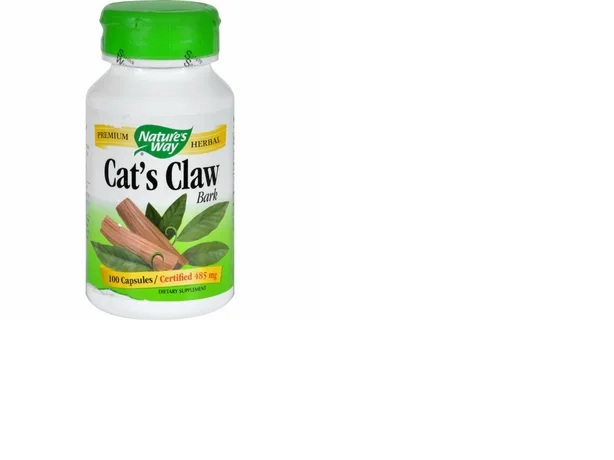Cat’s claw, scientifically known as Uncaria tomentosa, is a woody vine native to the Amazon rainforest and other tropical regions of Central and South America. Revered for its historical uses in traditional medicine, cat’s claw has gained recognition for its potential health benefits in modern times. In this comprehensive guide, we’ll delve into the origins, nutritional composition, therapeutic uses, dosage recommendations, and safety considerations associated with cat’s claw supplements.
Understanding Cat’s Claw
Origins and Traditional Use
Cat’s claw has been used for centuries by indigenous peoples of the Amazon rainforest, including the Asháninka, Shipibo, and Quechua tribes. Traditionally, cat’s claw bark and roots were brewed into teas or decoctions and used to treat various health conditions, including inflammation, arthritis, digestive disorders, and infections. The vine derived its name from its claw-shaped thorns, which resemble the claws of a cat.
Nutritional Composition
Cat’s claw contains a diverse array of bioactive compounds that contribute to its medicinal properties, including alkaloids, glycosides, flavonoids, tannins, and polyphenols. The primary bioactive constituents in cat’s claw are believed to be pentacyclic oxindole alkaloids (POAs) and tetracyclic oxindole alkaloids (TOAs), which exhibit immunomodulatory and anti-inflammatory effects. Additionally, cat’s claw is rich in antioxidants, which help protect cells from oxidative damage.
Health Benefits of Cat’s Claw Supplements
Immune Support
Cat’s claw supplements are prized for their immunomodulatory properties, which help regulate and strengthen the immune system. The alkaloids in cat’s claw stimulate the activity of immune cells such as T-cells, B-cells, and natural killer (NK) cells, enhancing the body’s defense against infections and foreign invaders. Cat’s claw may help reduce the severity and duration of colds, flu, and other respiratory infections.
Anti-Inflammatory Effects
Cat’s claw exhibits potent anti-inflammatory properties, making it beneficial for individuals with inflammatory conditions such as arthritis, rheumatism, and inflammatory bowel disease (IBD). The alkaloids and other bioactive compounds in cat’s claw help inhibit pro-inflammatory cytokines and enzymes, reducing inflammation and alleviating pain. Regular supplementation with cat’s claw may help improve joint mobility and reduce stiffness associated with arthritis.
Antioxidant Protection
Cat’s claw is rich in antioxidants, which help neutralize harmful free radicals and protect cells from oxidative damage. The polyphenols and flavonoids in cat’s claw scavenger free radicals, reducing the risk of chronic diseases such as cancer, heart disease, and neurodegenerative disorders. Antioxidant-rich cat’s claw supplements may help support cellular health and mitigate the effects of aging.
Digestive Health
Traditionally, cat’s claw has been used to support digestive health and alleviate gastrointestinal discomfort. The anti-inflammatory and antimicrobial properties of cat’s claw help soothe irritated mucous membranes in the digestive tract and inhibit the growth of harmful bacteria. Cat’s claw may be beneficial for individuals with conditions such as gastritis, ulcers, and irritable bowel syndrome (IBS).
Antimicrobial Activity
Cat’s claw exhibits broad-spectrum antimicrobial activity against bacteria, viruses, fungi, and parasites. The alkaloids in cat’s claw help disrupt the cell membranes of microorganisms, inhibiting their growth and replication. Cat’s claw supplements may be used to support the body’s natural defenses against infections, including urinary tract infections, candidiasis, and viral respiratory infections.
Dosage Recommendations
Standardized Extracts
Cat’s claw supplements are available in various forms, including capsules, tablets, tinctures, and teas. Dosage recommendations may vary depending on the concentration of active compounds and the specific health condition being targeted. However, a typical dosage range for cat’s claw extract is 250-1000 milligrams per day. It is advisable to follow the dosage instructions provided on the product label or consult with a healthcare professional for personalized recommendations.
Safety Considerations
Generally Recognized as Safe
Cat’s claw supplements are generally considered safe for most individuals when taken at recommended doses. However, some people may experience mild side effects, including gastrointestinal upset or allergic reactions. It is essential to start with a low dose and monitor for any adverse reactions. Pregnant or breastfeeding women should consult with a healthcare professional before using cat’s claw supplements.
Potential Interactions
Cat’s claw supplements may interact with certain medications or medical conditions. Individuals taking immunosuppressant drugs or anticoagulants should exercise caution and consult with a healthcare professional before using cat’s claw supplements. Additionally, individuals with autoimmune diseases or organ transplants should avoid cat’s claw due to its potential immunomodulatory effects.
Conclusion
Cat’s claw supplements offer a myriad of potential health benefits, including immune support, anti-inflammatory effects, antioxidant protection, digestive health, and antimicrobial activity. With its rich history and therapeutic properties, cat’s claw continues to be valued as a versatile botanical supplement. By incorporating cat’s claw supplements into a balanced lifestyle, individuals
- Benefits of Chaga Mushroom Supplements - March 29, 2024
- Benefits of Cantaury Supplements - March 29, 2024
- Benefits of Cats Claw Supplements - March 21, 2024

